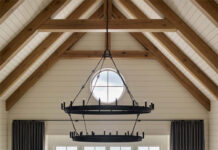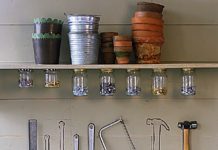How rodent infestations can be dangerous
Rodents can carry a litany of diseases that are harmful to both humans of every age group and other animals such as pets. They spread these diseases through their droppings and their saliva which can get on food that is not stored properly. Outside of the inherent risk of disease, rodents are commonly dirty and are frequently traveling between many locations, carrying any number of foreign bacteria. Because of this, it is vital to hire a professional wildlife removal company like Orlando Rats to help control a rodent infestation.

used with permission via Emily Griffin Design
Why would a rodent want to settle on your property?
Rodents are small, warm-blooded mammals that prefer to live in dark enclosed spaces such as gaps between walls, in attics, basements, porches, or garages. These enclosed spaces provide the safety and protection a rodent is looking for in its nest. Rodents are also attracted to exposed food found in many areas on the property.

used with permission via Emily Griffin Design
Types of rodents that infest properties
The most common infestation is from mice, followed by rats, and in rarer cases chipmunks and squirrels. The first two are what is called “commensal rodents” as they “share the table” of the resources on your property. More information on rats can be found here.
Where would rodents settle?
Rats in particular often settle in the garages of homes because of the safety provided. Most garages are full of clutter that creates small spaces for rats to live avoiding human detection. The garage also provides more warmth, closer access to the house, and thus food resources, and space for procreation.

used with permission via Emily Griffin Design
What preventative measure can you take to avoid a rodent infestation?
To prevent a rodent infestation, measures need to be taken to stop them from targeting your property. The first step would be to seal all holes that are exposed on the property, this includes water pipes, windows, cracks in the wall, and missing boards. These are all entry points that rodents look for to get into the property. Areas can be sealed with fast-drying cement, proper caps, or with a reinstallation of boards. After making sure there are no rodent entry points, examine the area where dried food is kept such as chips or cereal boxes. Ensure that there are no crumbs on the counter or in the pantry that might lure rodents to that food source. Rodents, especially rats, have sharp teeth that can gnaw through cardboard boxes or bags with ease to reach their food source. As scavengers, they look for any opportunity to get food, so keeping a clean kitchen, tidy snack storage, and keeping rats out of the garbage is vital to preventing a rodent infestation. Outside of the home, keeping spaces organized and clean through box storage prevents cluttered areas from being hideouts for rodents. This leaves the rodents exposed and prevents them from hiding away and creating a larger infestation.

used with permission via Emily Griffin Design
Identifying signs of a rodent infestation
The most evident sign of a rodent infestation is their fecal droppings which are usually characterized by their size: three-fourths of an inch long. Identifying whether they are recent droppings, characterized by a black color, or expiring rat droppings, characterized by a grey hue is imperative. From their droppings, you can get an approximation of how long rodents have been living on your property and thus, how severe your rodent infestation problem is. Physical sightings of rodents on your property mean that you should check to make sure you have engaged in all preventative measures. If you are unsure of what to do next, contact a wildlife specialist. Thanks to Orlando Rats for consulting
























